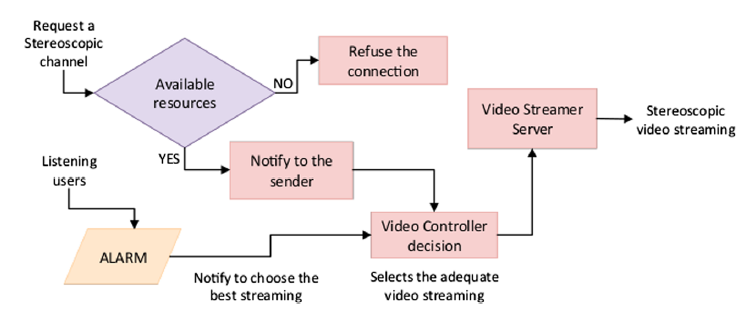A cognitive network management system to improve QoE in stereoscopic IPTV service
New Internet Protocol Television (IPTV) services are including new technologies such as Stereoscopic TV and three-dimensions (3D) HDTV. As well, increased ubiquitous networking and promoting in smart devices have led to high demand IPTV (over networks). Stereoscopic content required higher data flow to support these emerging TV services, and there are higher requirements at the network layer to provide good quality of service and quality of experience to the end users in delivering stereoscopic IPTV. In this paper, we propose a new concept of cognitive network management algorithm and protocol based on 3D coding techniques for delivering of stereoscopic IPTV service. The proposed approach explains how the management algorithm observes the network performance to guarantee the quality of the stereoscopic IPTV services, by measuring the performance of quality of service (QoS) parameters (delay, jitter, and packets loss) and quality of experience (QoE) metrics such as Peak Signal-to-Noise Ratio (PSNR), Moving Image Videography (MIV), and Mean Opinion Score (MOS). Those parameters are monitored in order to take appropriate codification decision for IPTV service provider. Moreover, the codification decision uses K-mean classification to select the better codification for the end users. Therefore, both kinds of 3D coding formats such as Stereo Video Coding (SVC) format and 2D + Z Coding format (2D-plus-Depth) are selected in our experiments. As a result, our proposal successfully ensures the appropriate quality of service and quality of experience to the end users when the service of stereoscopic IPTV is being delivered.

If you want to know more about this topic, see the original article.






